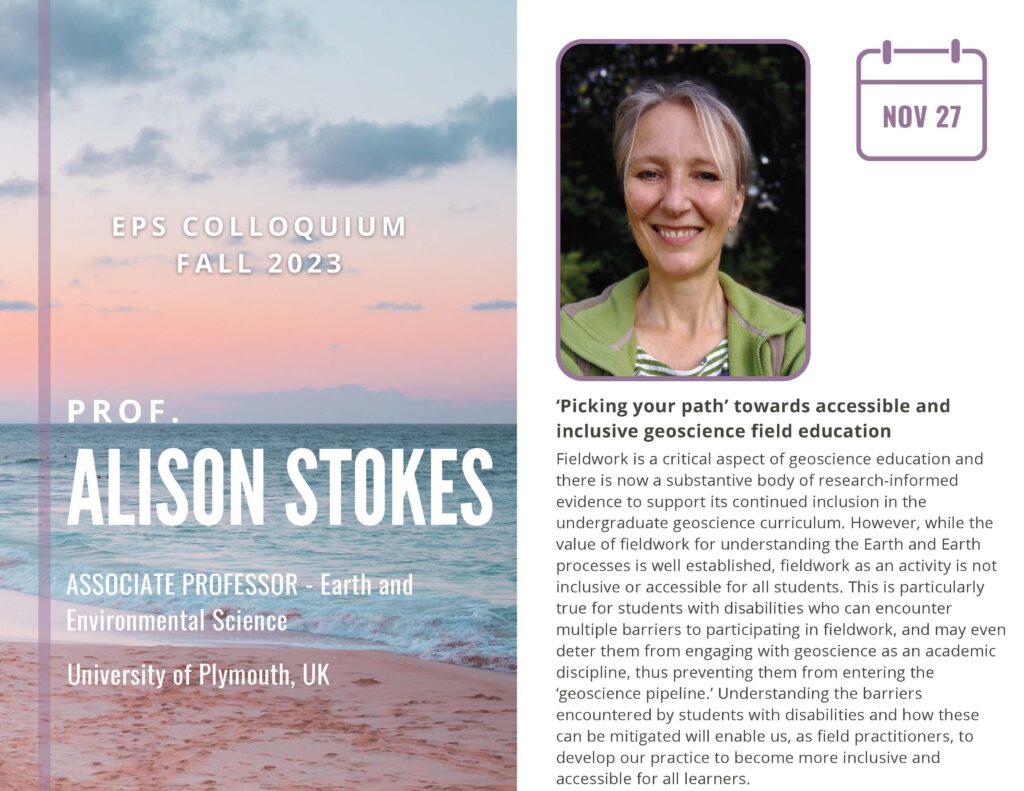EPS Colloquium – Alison Stokes, University of Plymouth (England, UK)
‘Picking your path’ towards accessible and inclusive geoscience field education
Fieldwork is a critical aspect of geoscience education and there is now a substantive body of research-informed evidence to support its continued inclusion in the undergraduate geoscience curriculum. However, while the value of fieldwork for understanding the Earth and Earth processes is well established, fieldwork as an activity is not inclusive or accessible for all students. This is particularly true for students with disabilities who can encounter multiple barriers to participating in fieldwork, and may even deter them from engaging with geoscience as an academic discipline, thus preventing them from entering the ‘geoscience pipeline.’ This is important – geoscience professions need a steady supply of talented and committed graduates, and students with disabilities are a talented population with diverse perspectives of the natural environment, and with the same potential to become expert geoscientists. Understanding the barriers encountered by students with disabilities and how these can be mitigated will enable us, as field practitioners, to develop our practice to become more inclusive and accessible for all learners.
To be added to the EPS colloquium mailing list, please contact Caroline Carr at carolinecarr@fas.harvard.edu.

Alison Stokes is Associate Professor in Earth and Environmental Science, and Associate Head of School (Education and Student Experience) for the School of Geography, Earth and Environmental Sciences at the University of Plymouth, UK. She completed her PhD at the University of Plymouth investigating microstructural controls on mineral nucleation and growth in mid-crustal shear zones, and has been specializing in discipline-based geoscience education research since 2005. Alison’s current research focuses on inclusive approaches to fieldwork practice, particularly in relation to disability.

